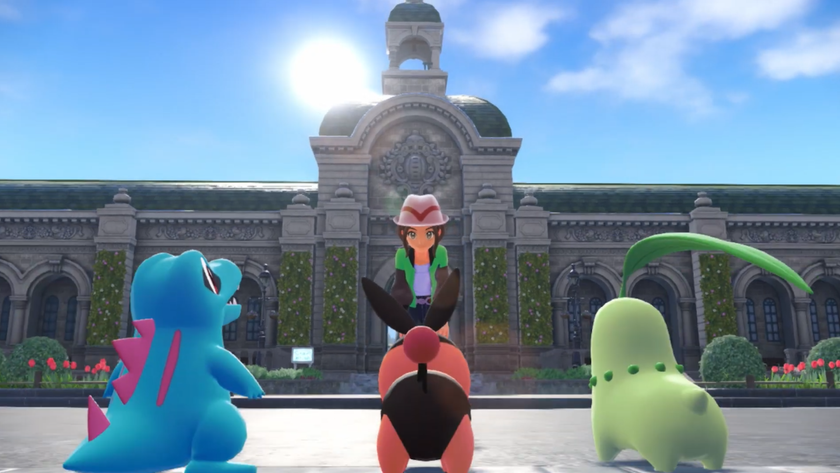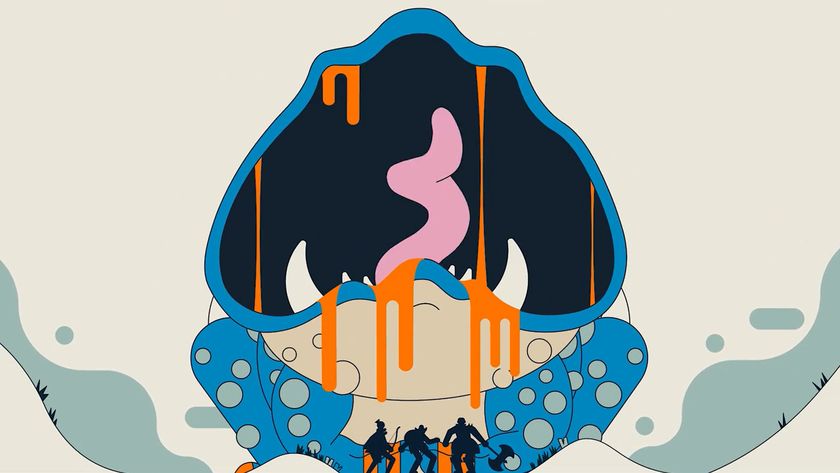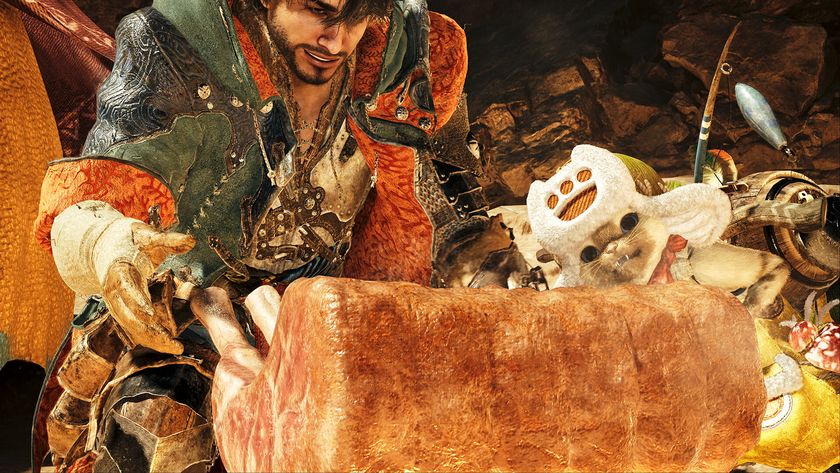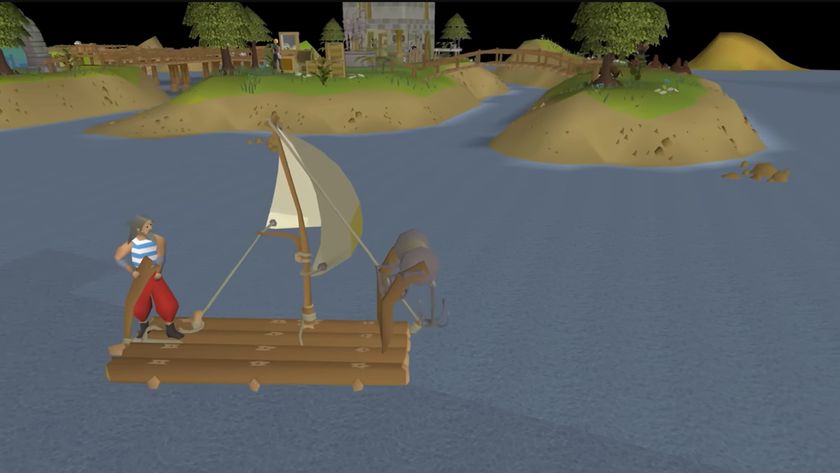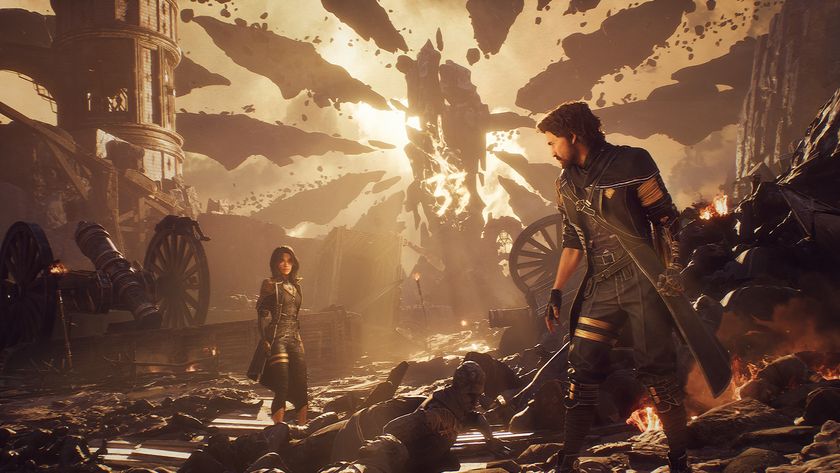The Top 7 historically inaccurate historical games
Wait, that's not how it happened!
2. Bladestorm: The Hundred Years’ War
Admittedly, we’re no scholars when it comes to the Hundred Years’ War, the long series of conflicts between France and England that took up most of the 14th and 15th centuries. And when Koei tackled the conflict, we expected the usual dose of anachronistic, Dynasty Warriors-style goofiness it brings to historical warfare.

Above: JOAN OF ARC WITH LONG HAIR HERP DERP
Maybe we were wrong to expect that it would otherwise try to present the subject matter at least somewhat realistically, but we can’t help but think that shoehorning camels, ninjas and elephants into a medieval European war might have stretched our disbelief just a hair too far.
1. Shadow of Rome
Where to even begin with this one? Like Saboteur, nobody really played Shadow of Rome to get an accurate historical picture of its time period; they played it because it let players hack off an enemy’s arm and beat him to death with it. So we’re not going to pick it apart for its utterly bizarre depictions of Roman gladiatorial combat and battlefield tactics (although those deserve to be pointed out). Even without them, though, it takes such enormous liberties with Roman history – fairly well-known Roman history, at that – that we feel compelled to call it on its bullshit.
WARNING: SPOILERS FOR A SIX-YEAR-OLD GAME FOLLOW
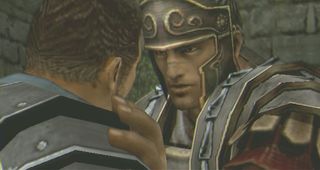
Shadow begins with, and revolves around, the murder of Julius Caesar, which for the purposes of storytelling the game turns into a murder mystery. After returning from war against a Germanic chieftain named Barca (who may have been named for Hannibal Barca of Carthage, an entirely different sort of enemy), hero Marcus Agrippa sees his father framed for the murder. Agrippa then does what any sensible citizen of Rome would, and goes into hiding as a gladiator until such time as the murder can be solved. This he leaves to his young friend Octavian, who quickly discovers that the real killer was the cartoonishly evil Decius Brutus, acting on orders from Antonius (aka Mark Antony, Caesar’s right-hand man).
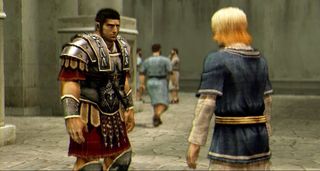
Above: "Can I trust you to solve this mystery, Teenage Friend?"
Sign up to the 12DOVE Newsletter
Weekly digests, tales from the communities you love, and more
The thing is, Caesar’s real assassination was notable in part because it took place in public, in broad daylight. Figuring they’d be hailed as tyrant-slaying heroes of the republic, Caesar’s multiple killers made no attempt to hide their identities. They certainly didn’t frame Agrippa’s dad for the crime, and their machinations weren’t deftly uncovered through the efforts of Octavian (himself better known as Augustus Caesar, future emperor or Rome and calculating little shit). And Antony, rather than directing the conspirators, helped drive them out of Rome and later crushed their attempts at rebellion.
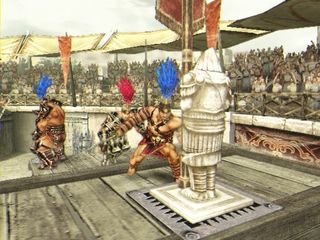
Above: Historians would probably also have some choice words about whatever this is
So why, then, does the game end with Agrippa killing Antonius? Because in real life, Antony and Octavian were locked in a power struggle that ended with Antony fleeing to Egypt, pursued by Octavian’s invading army. There, he and Cleopatra famously committed suicide rather than face the capture and subsequent brutal humiliation Octavian had in store for them. The story was simplified to cut out the intervening years of backstabbing and political maneuvering, but the end result was a messy misrepresentation of pretty much every real person and event involved.
Sep 12, 2011


The Top 7... Things in games that will never be realistic
Because some things can't be faked

Hitler's greatest hits
DID SOMEONE SAY "HISTORY!?"

"We got heel Cena before GTA 6": Even John Cena himself is comparing the 20-year wait for his WWE heel turn to the 12-year wait for the next Grand Theft Auto
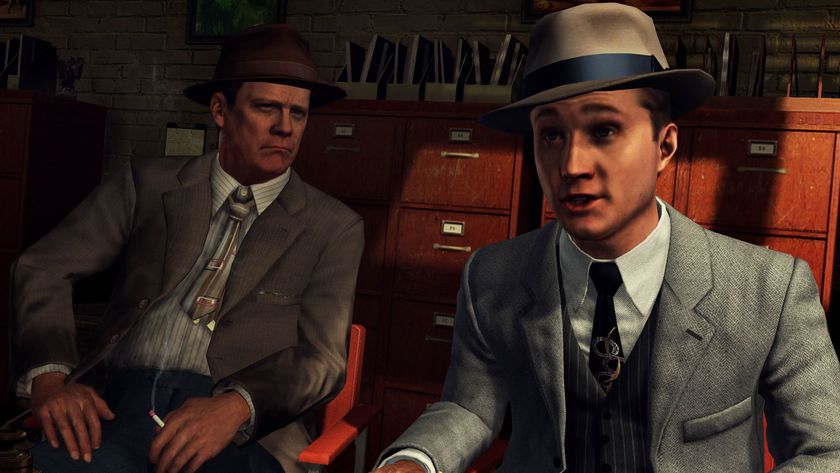
GTA developer Rockstar opens new Australian branch by acquiring the studio that's been working on its ports for "this past decade"

